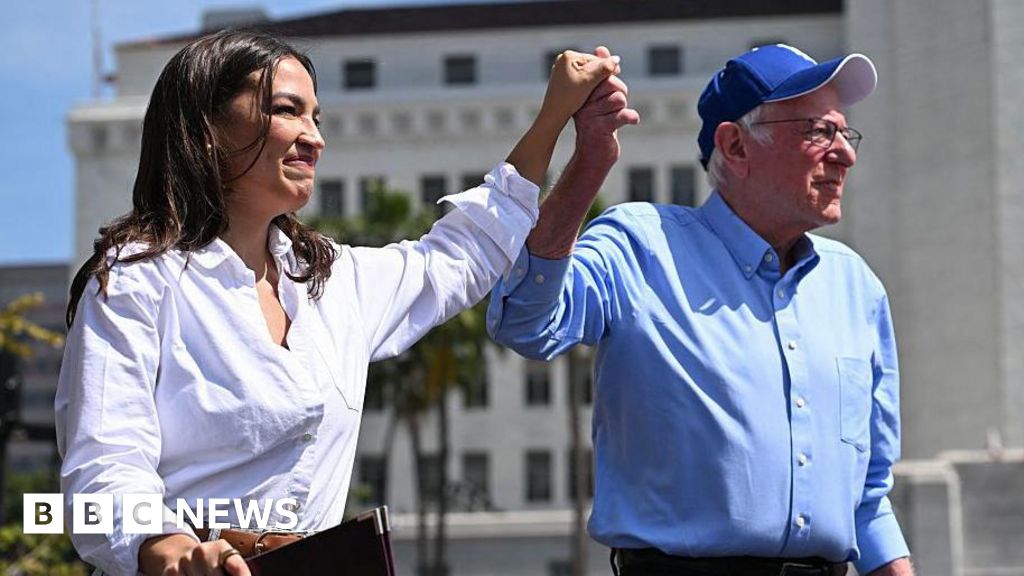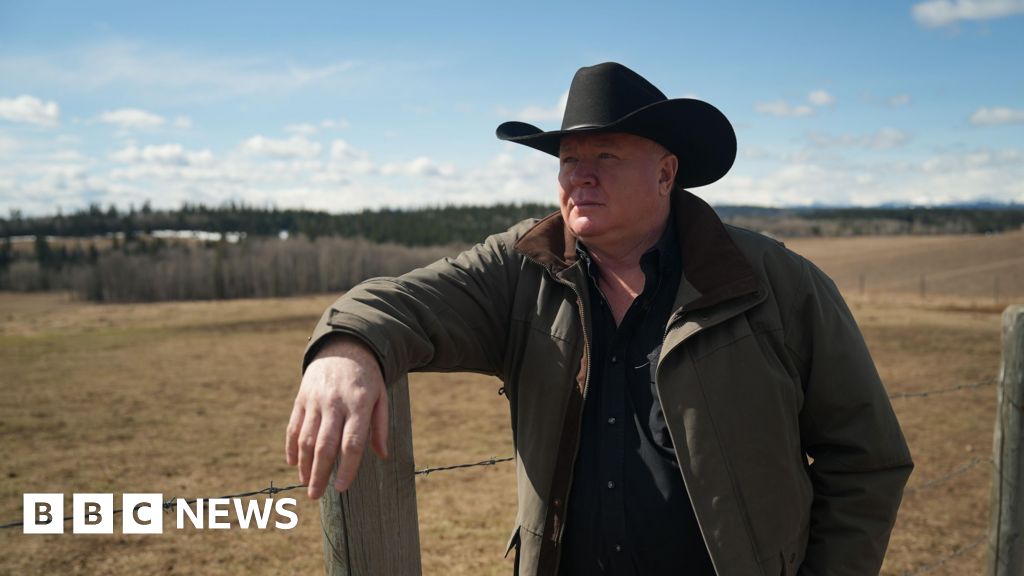What Should Democrats Do Now? Diverse Perspectives Abound

In the wake of President Donald Trump's first 100 days in office, the Democratic Party finds itself at a significant crossroads, struggling to forge a unified strategy amidst internal fractures and a lack of clear leadership. Many voices within the party are calling for action, yet consensus on the way forward remains elusive. A notable event highlighting this tension recently took place in the rural town of Bakersfield, California. Here, two prominent figures of the progressive wing, Congresswoman Alexandria Ocasio-Cortez and Independent Senator Bernie Sanders, embarked on their 'Fighting Oligarchy' tour.
Bakersfield, an agricultural town that voted heavily in favor of Trump, might seem an unusual venue for East Coast progressives. Despite this, the duo attracted a sizable crowd to a local auditorium, reminiscent of 1960s activism. Attendees enthusiastically sang along to Woody Guthrie's iconic song, This Land is Your Land, and erupted in boos whenever Sanders criticized Trump and tech mogul Elon Musk. For many local Democrats and left-leaning Independents, the rally was a beacon of hopea chance to express their discontent with the current political landscape and their own partys perceived inadequacies in mounting a robust opposition against Trumps policies.
Among the attendees, 26-year-old Karla Alcantar voiced her frustration: 'The Democratic party should be doing more to try to protect everybody. I feel like some of them have just folded over completely, and there are some that are trying to do the work of all.' Her sentiments resonate with a broader disillusionment within the party ranks. Attendee Juan Dominguez, 26, echoed similar concerns, suggesting that while Democrats may lack the power to enact sweeping changes, they could still hinder the progression of unfavorable policies. 'It honestly feels like I'm not seeing any of that,' he lamented.
Recent polling data underscores this frustration, revealing that 52% of Democrats and Democratic-leaning Independents believe their party's leadership is steering the organization in the wrong direction. In a CNN/SSRS poll conducted in mid-March, only 48% responded that leadership was moving in the right direction. An overwhelming 57% of respondents expressed a desire for Democratic officials in Congress to actively challenge the Republican agendaa stark contrast to a 2017 poll where 74% of Democrats advocated for collaboration with Republicans following Trumps initial election.
Former Pennsylvania Congressman Conor Lamb addressed these sentiments during a town hall event in Pittsburgh, highlighting a palpable hunger for action within the Democratic base. 'What they're pressing for is not just Democratic leaders to lash out because that's going to make their followers feel good,' he noted. Lamb emphasized the urgency felt by constituents: 'I think they feel like the survival of the system we have all counted on is itself on the line, and they want us to act with that level of urgency.' He advocates for a focus on concrete issues affecting people's lives as a pathway to rekindle faith in the party.
Ocasio-Cortez and Sanders 'Fighting Oligarchy' tour represents an effort to address these concerns by engaging with communities in conservative regions and spotlighting economic issues that resonate with voters. Their approach frames both Trump and his wealthy supporters as responsible for the struggles faced by everyday Americans. Ocasio-Cortez succinctly poses the question: 'Oligarchy or democracy?'
However, their strategy is not the only proposed path for the Democratic Partys evolution. Political scientist Professor Christian Grose from the University of Southern California notes that periods of introspection are typical following electoral losses. Some party members argue for a recalibration toward more centrist positions, suggesting that the Democratic Party risks alienating conservative-leaning Americans on hot-button issues like transgender rights.
California Governor Gavin Newsom represents this centrist approach as he seeks to broaden the partys appeal. Known nationally as a staunch advocate for abortion rights and LGBTQ equality, Newsom has initiated a podcast to engage in conversations with figures who hold opposing viewpoints. His recent decision to interview controversial right-wing strategist Steve Bannon drew ire from many within his party. Newsom defended this move, stating, 'I think it's important to have difficult conversations or even have a civil conversation that may be difficult for people to listen to because everyone is out there trying to tear each other down.'
As the Democratic Party stands at this crucial juncture, the question remains: will they successfully unify and solidify their direction, or will internal divisions continue to hinder their ability to respond to the political challenges of the day? The answers may lie in how effectively they can engage their base while simultaneously reaching out to undecided voters in the broader electorate.


















